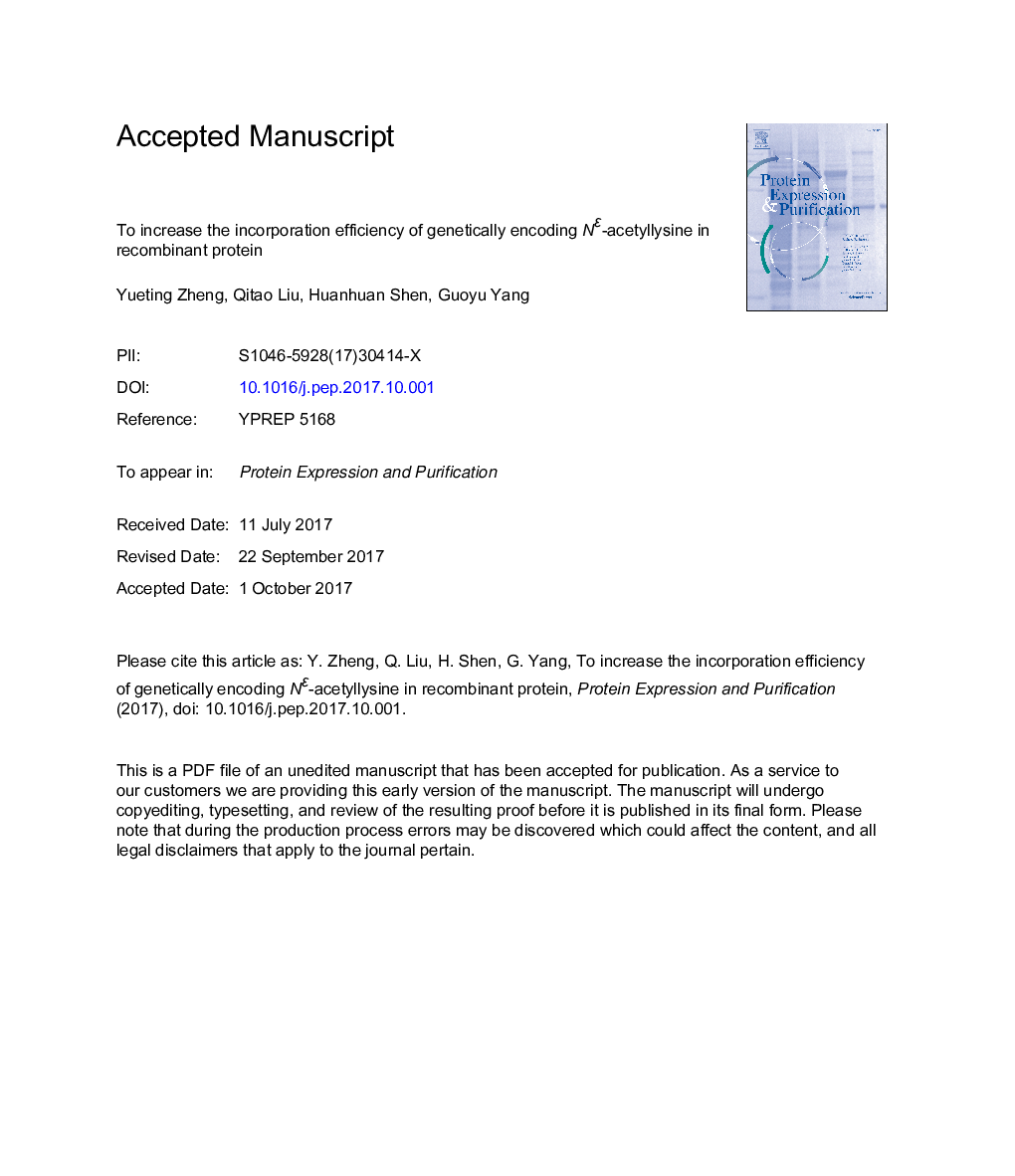| Article ID | Journal | Published Year | Pages | File Type |
|---|---|---|---|---|
| 8359535 | Protein Expression and Purification | 2018 | 20 Pages |
Abstract
Reversible Nε-lysine (Nε-Lys) acetylation is a dynamic post-translational modification. Genetic incorporation of Nε-acetyllysine (Nε-AcK) into the specific site of a protein is a powerful method for producing recombinant protein with acetylation and studying the functional role of protein acetylation. Because of the universal existence of deacetylase such as CobB in vivo, the acetyl group of Nε-AcK may be removed from recombinant protein. So in the process of incorporating acetyl lysine into protein, nicotinamide (NAM), a lysine deacetylase (KDAC) inhibitor, is needed to inhibit the KDAC activity and protect the acetyl group of Nε-acetyllysine incorporated from removal in vivo. In this study, we knocked out cobB gene from an E. coli strain and used it as host for incorporating of Nε-AcK into recombinant protein by expanding genetic code. Comparing with the addition of KDAC inhibitor, this is a novel method to protect the acetyl group of Nε-acetyllysine from deacetylation by using cobB knockout strain. Thus, this method provides a better way for protecting recombinant acetylated protein from deacetylation. By knocking out cobB gene from the strain of E. coli, we successfully produced homogeneous acetylated protein by expanding genetic code with a high effectiveness. This method will also provide a good reference for genetically introducing other varieties of modified amino acids into protein.
Related Topics
Life Sciences
Biochemistry, Genetics and Molecular Biology
Biochemistry
Authors
Yueting Zheng, Qitao Liu, Huanhuan Shen, Guoyu Yang,
